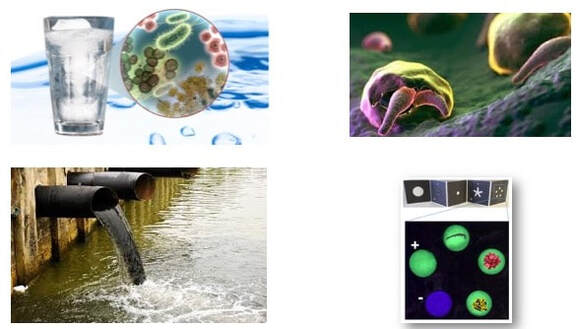Advanced Sensors for Water, Environment & HealthOur multidisciplinary team focuses on the development of low-cost, rapid and point-of-use sensors and devices for environmental science (e.g. microbial contamination in drinking water), public health (e.g. drug of abuse, community infectious), and biomedical diagnostics (e.g. infectious disease and cancer), including the following areas.
|
| Zhugen Yang Group |
|

